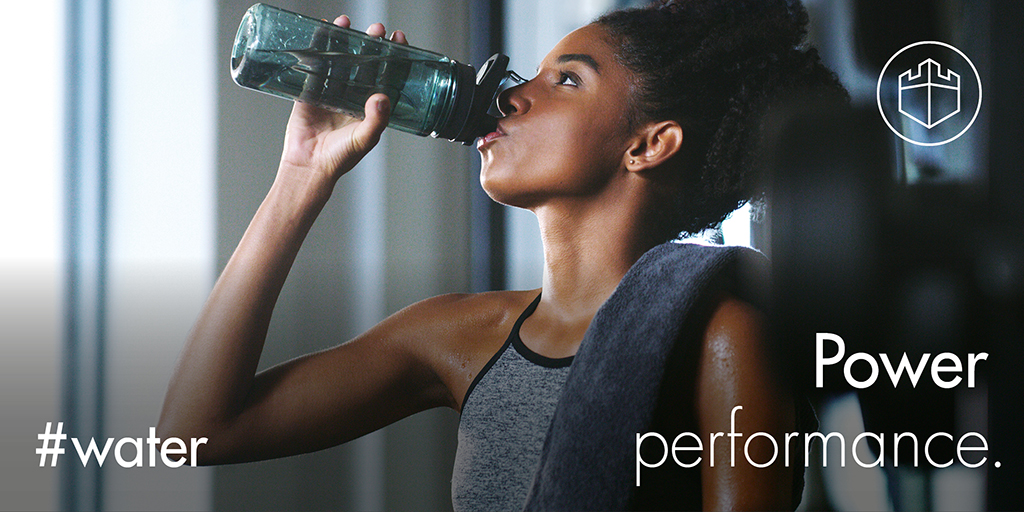Helping sports facilities – the case for better dispensers

Athletes of all ages and abilities deserve the edge provided by quality water filtration
Water is central to sports performance, but not all athletes are getting the high-quality filtered water they deserve.
Almost all of us take regular hydration for granted. Even when we aren’t sweating and heaving on the treadmill or in the weight room, we’re still coming up short. As previously covered, the average worker neglects their hydration levels to an alarming extent. Most people don’t know how quickly and easily dehydration happens, nor how harmful it is to cognitive performance.
Athletic performance raises physical, emotional and cognitive demands to an extraordinary level. We can all do better, but no one should prioritise hydration more than athletes and the people who handle them.
Sports governing bodies and athletic commissions must seek every advantage they can for their athletes’ performance and subsequent wellbeing. But the case for greater optimisation goes deeper than that.
Achievements speak louder than words, and the athlete matters more than ever as a cultural figure of excellence. Gold medals and full trophy cabinets are only part of the equation in the modern age.
A thriving sporting culture now enables philanthropic achievement, collective community health, social mobility and cooperative internationalism. Athletes can be role models and prominent voices in social struggles and human rights issues.
Water quality counts for athletes
Though unfiltered water is safe to drink in many middle-to-high income countries, the precise qualities of water vary by region, just as they vary across commercial brands.
We all know that water powers human performance. Most public gyms and performance centres may have moved beyond the base level of tap water to drinking and refilling fountains. But who wants to lag behind when there are better options available?
The athlete’s intake needs to be preventative instead of reactive. According to this 2019 study on practical hydration for sports:
“While the sensation of thirst, a centrally mediated response to body water deficits, is useful in dictating the need for fluid intake during daily life, thirst is relatively insensitive in acutely tracking hydration status during exercise.”
Optimal exercise means taking in pure water before, during and after exercise. Perhaps the most simple and crucial advantage to filtered is how much it improves taste and thus eases consistent drinking.
But that’s hardly all. Filtered water helps athletes improve performance not only through hydration, but the inclusion of quality minerals.
Why filtered water?
Purer waters have elevated levels of magnesium, potassium, sodium and calcium. Filtration also reduces the potential drawbacks of excessive chlorination.[2] This is especially important for swimmers, who are routinely exposed to chlorine. Athletes who ingest alkalising supplements see increased physical power and cardiac output. This raises the profile of alkaline-filtered water as a difference-maker.[3]
The potential antioxidant qualities of filtered water can improve the daily function of healthy bodily cells whilst suppressing malignant ones.[4]
A 2016 study focused on that year’s Rio Olympiad measured multiple environmental factors and their relationship to performance outcomes. Its results found water quality to be highly influential, even to the wellbeing of the world’s most elite athletes.[5]
An athlete’s specific hydrational needs will then be affected by other environmental factors, such as their host city’s pollution levels, weather, and altitude. For indoor training and competition, thorough air conditioning and adequate sunlight exposure may be recommended for facilities, but they are not always guaranteed. Like water access and quality, facilities vary by region.
The uncertainty and high level of variability at play here means that athletes and training camps will need access to pure water as an unchanging constant. It’s on facilities managers to meet those needs.
Helping scientific research in strength and conditioning
The body of literature investigating the finer details of hydration for sports performance is constantly expanding and in need of new material. Though athletes can rely on the anecdotal evidence and experience of coaches who test their knowledge in the field, nothing adds credibility like a scientific paper.
Increasing athletes’ access to clean drinking water solutions is the perfect way to build up this crucial body of knowledge.
Helping our best and brightest in physical performance will inspire and uplift those who cheer for them. Helping people drink more water and drink better water begins with increasing the number of available dispensers in the workplace.
Our most prominent health and wellbeing role models deserve the same privilege.
